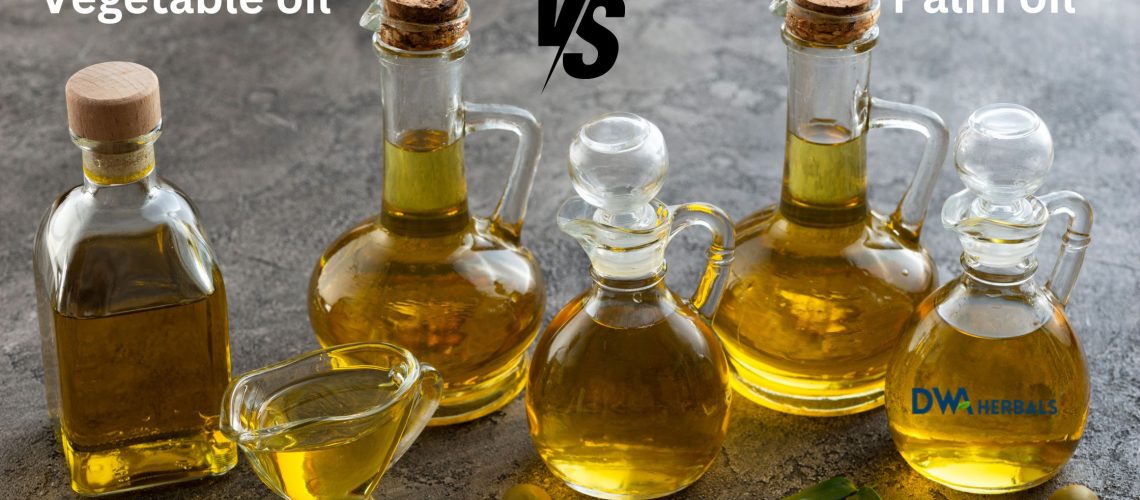
When it comes to cooking oils, the choices lining the supermarket shelves can be overwhelming. Among the myriad options, two contenders often stand out: vegetable oil and palm oil. These oils are used in cooking and food production, but they sparked debates over their health impacts, environmental sustainability, and ethical considerations. Let’s delve into the comparison between vegetable oil and palm oil to understand their differences and implications.
Vegetable oil is a broad category that encompasses oils derived from various plant sources, including soybeans, sunflowers, canola, and more. These oils are typically extracts through mechanical or chemical processes, with minimal refinement to preserve their natural flavors and nutrients.
On the other hand, palm oil is extract from the fruit of oil palm trees, primarily grown in tropical regions like Indonesia and Malaysia. The extraction process involves pressing the fruit to extract the oil, which undergoes refining to remove impurities and improve its shelf life. However, the refining process can strip palm oil of some of its natural antioxidants and nutrients.
In terms of nutritional composition, both vegetable oil and palm oil contain different types of fats. Vegetable oils like soybean and canola oil are high in unsaturated fats, including monounsaturated and polyunsaturated fats, which are considered heart-healthy when consumed in moderation. They also contain omega-3 and omega-6 fatty acids, essential for brain function and overall health.
Palm oil, however, is high in saturated fats, which have been linked to an increase risk of heart disease when consume in excess. While palm oil also contains some monounsaturated and polyunsaturated fats, its high saturated fat content has raised concerns among health professionals.
You can also read https://posts.gle/vU71GL
One of the most significant controversies surrounding palm oil is its environmental impact. The expansion of oil palm plantations has led to deforestation, habitat destruction, and loss of biodiversity in tropical rainforests, particularly in Southeast Asia. This deforestation contributes to climate change, as forests act as carbon sinks, absorbing carbon dioxide from the atmosphere.
In contrast, vegetable oils sourced from crops like soybeans and sunflowers can also have environmental impacts, including land use change, water consumption, and pesticide use. However, the extent of these impacts varies depending on factors such as agricultural practices, land management, and certification standards.
Beyond environmental concerns, palm oil production has faced scrutiny over social and ethical issues, including labor rights violations, land conflicts, and displacement of indigenous communities. The industry has been criticized for its exploitation of workers, including forced labor and child labor, particularly in countries like Indonesia and Malaysia.
In contrast, vegetable oil production may also face challenges related to labor rights and social justice, but the extent and severity of these issues can vary depending on factors such as the country of production, labor regulations, and corporate responsibility initiatives.
In the vegetable oil vs. palm oil debate, there are no easy answers. Both oils have their advantages and drawbacks, and the choice between them involves considering factors such as nutritional profile, environmental impact, and ethical considerations.
For consumers, making informed choices about cooking oils involves researching the sourcing practices of different brands, opting for sustainably produced oils certified by reputable organizations like the Roundtable on Sustainable Palm Oil (RSPO), and diversifying cooking oil options to reduce reliance on any single source.
Ultimately, by understanding the complexities of the vegetable oil vs. palm oil debate and taking steps to support sustainable and ethical practices, consumers can play a role in promoting a more responsible and equitable food system.
Dr Sushil is a researcher and founder of D WA Herbals with objective of providing healthy longevity to society. His aim is to develop food and drink-based products by using the inherent qualities of traditional herbs by optimizing their effect through modern technology, making our products extremely user-friendly. The research is focused on various lifestyle issues such as anxiety, stress, metabolism, digestion, immunity and may more which impact the health and lifestyle.
© 2023 DWA HERBALS. All Rights Reserved. Designed by NXlogy